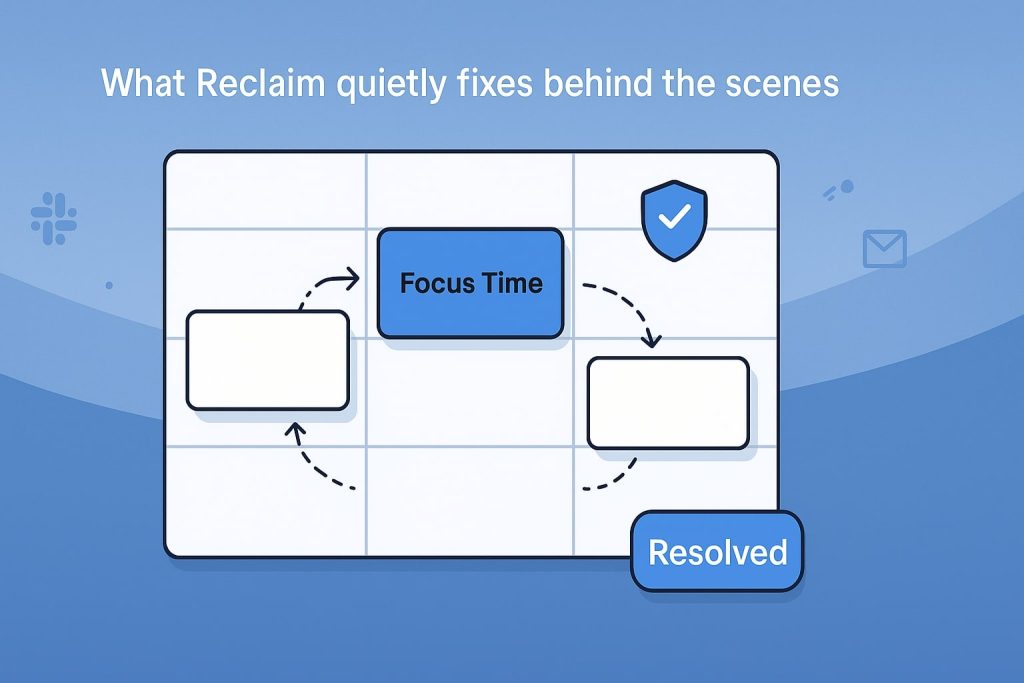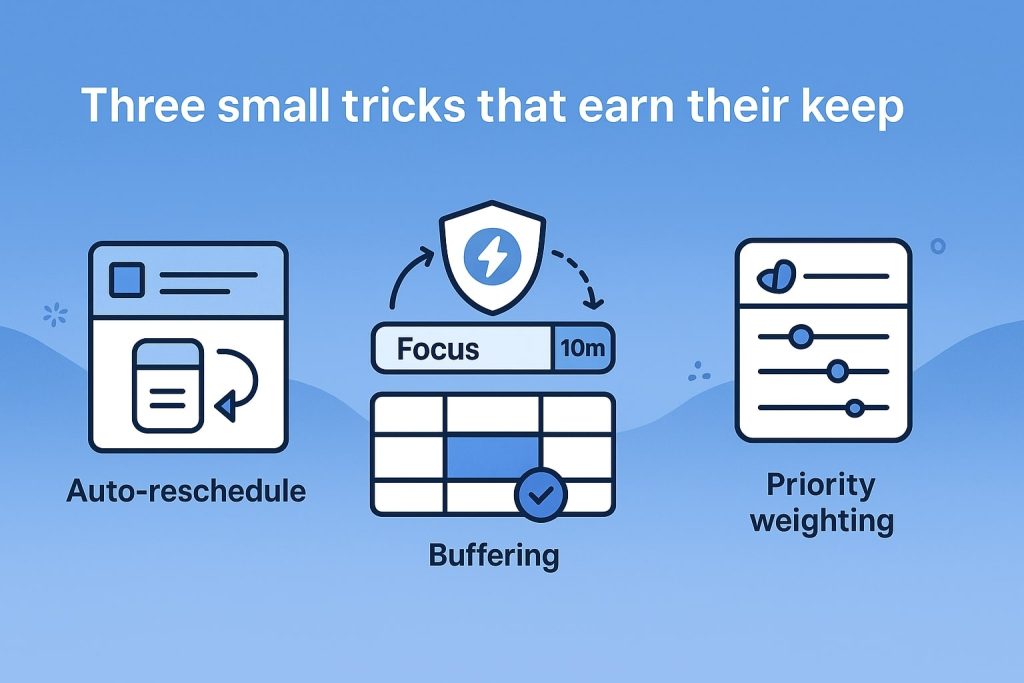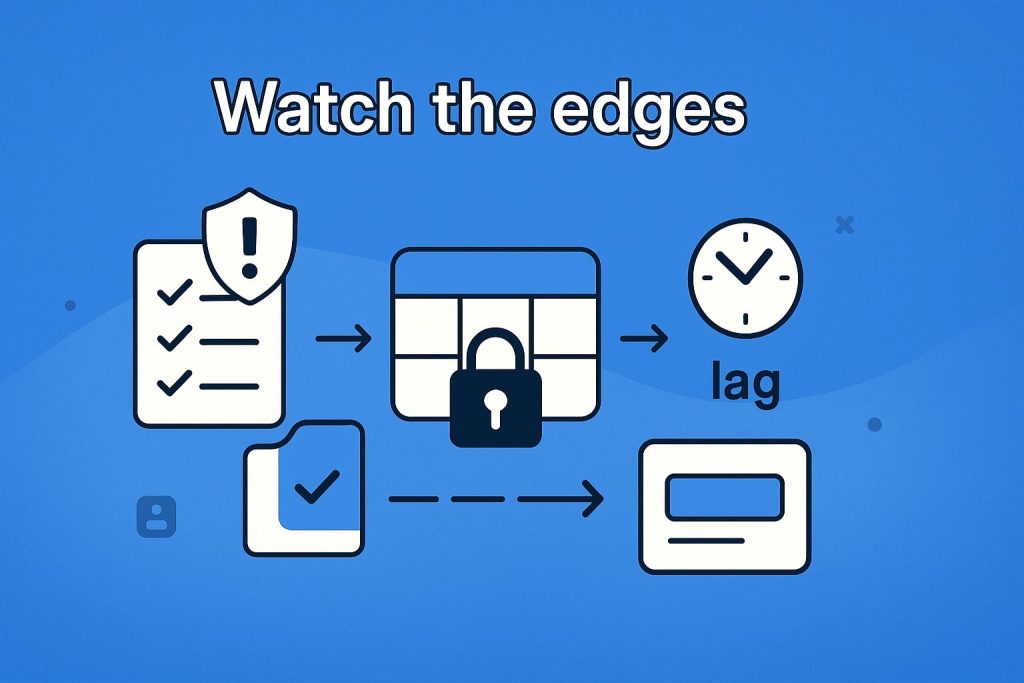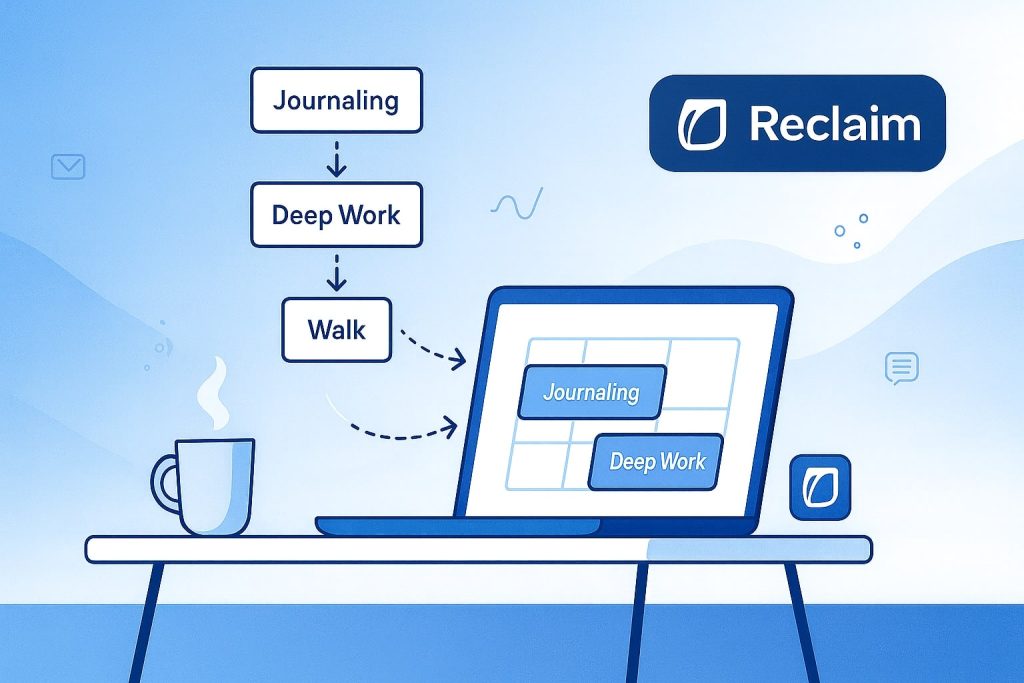I have a bad habit of protecting my first two hours on paper then smashing the barrier myself when emails roll in When every ping feels urgent even noble plans crumble. A friend suggested trying Reclaim AI, a planner that guards habits and breaks with quiet stubbornness After four weeks, my focus blocks stand like fresh paint Coffee tastes calmer code looks cleaner and I finally finish that morning journaling streak Here’s how the shift happened. Most readers here juggle similar fires so the experience might feel familiar too
Impact-Site-Verification: 0c3a9ded-ae45-46a0-8647-daa2ec488089
Forget the grand two-hour barricades I usually crash through. What works is a lean seven-minute warm-up that locks focus in place before the first inbox ping lands. I honed the steps while coaching clients, and they’re the backbone of the Reclaim AI shift I just shared. If you want the full playbook, head over to my complete productivity guide.
Why mornings get messy faster than you think

Look at last Tuesday Six calendar events before noon three overlapping Two are social hold-overs I forgot to delete one is a team stand-up that rarely needs me, and the rest are recurring habits, read backlog walk deep work Layered on top sit Slack reminders and an Asana notice about a ticket stuck in review. It feels harmless until small overlaps turn into dominoes I skip the walk, push deep work into lunch, and by three I’m answering DMs with one eye and writing with the other. The result is a day that looks busy but feels brittle, ready to snap at the slightest change
What Reclaim quietly fixes behind the scenes

Reclaim steps in before the first collision. Each night it scans the next ten workdays, looking for habit blocks nudged out of view and meetings that could politely move. The planner negotiates with itself – push inbox sweep five minutes, slide the client sync to an afternoon pocket, stretch lunch if the walk block needs breathing room I still approve changes but the heavy lifting happens while I dream. The magic feels subtle I wake up and see a tiny “Resolved” badge where yesterday’s conflict alert sat Over time it learns which sessions I defend most fiercely and builds walls around them without asking. Colleagues notice fewer reschedules, and my coffee stays hot longer
Three small tricks that earn their keep

- Habits auto-reschedule. I tag journaling, reading, and the quick stretch as habits. When a new meeting lands, Reclaim moves the habit, not the meeting, yet keeps it the same day Zero guilt from skipping, zero friction from re-adding
- Focus-time buffering. Mark a task as heads-down and the planner wraps ten-minute cushions around it Those soft borders absorb overruns and stop back-to-back fatigue without wasting real estate
- Priority weighting. Drag a slider and tell Reclaim this task matters more than that one Next sync, the higher weight sits earlier so deadlines drift from scary to sensible
The interface shows the logic in plain language so I’m never guessing why something moved That transparency eases the trust jump most tools forget to address, especially for folks wary of surrendering control
A Tuesday that finally flows
Take yesterday. Alarm at 6:45. I open the calendar: red flag, lead dev wants an earlier code review. Reclaim already slipped the review to 8:30 nudged reading to nine clipped email triage to twenty minutes. I tap Accept An hour later a meeting cancels; the planner stretches my walk to a full half hour By noon every block fired, nothing felt rushed, and I still recorded a short Loom video answering a client question. That pocket would have vanished under the old chaos. The real gain isn’t just minutes; it’s the calm knowledge that my day bends instead of snapping.
Watch the edges

Reclaim is not perfect. If your company locks meeting slots with little wiggle room the algorithm turns into a polite observer, highlighting conflicts it cannot fix Recurring external client calls pose the same challenge. The mobile app sometimes lags behind desktop changes for a minute or two which can confuse you when walking to the subway. None of these quirks break the promise, yet they matter I keep a weekly review to catch edge cases and teach the planner my subtle preferences. Doing that review feels like stretching after a run five quiet minutes that prevent bigger aches
If you crave mornings that keep promises give Reclaim a trial week and watch how it treats habits like VIP guests. Curious how these blocks fit into a larger routine? My guide to building a flexible morning framework lays out the step-by-step blueprint today Give it a spin and tell me what shifts



